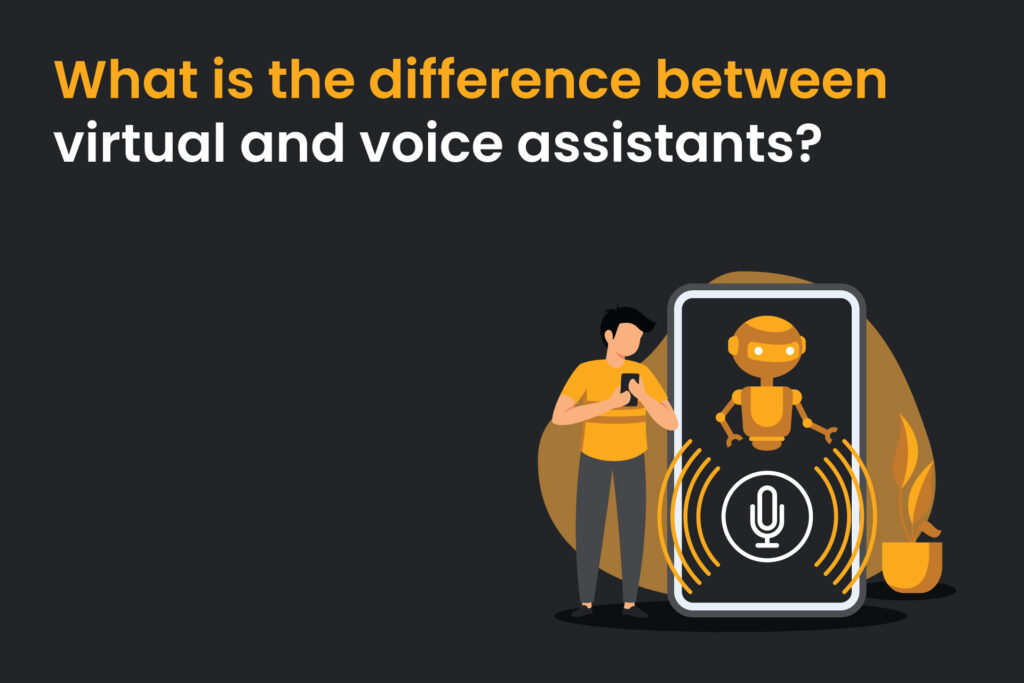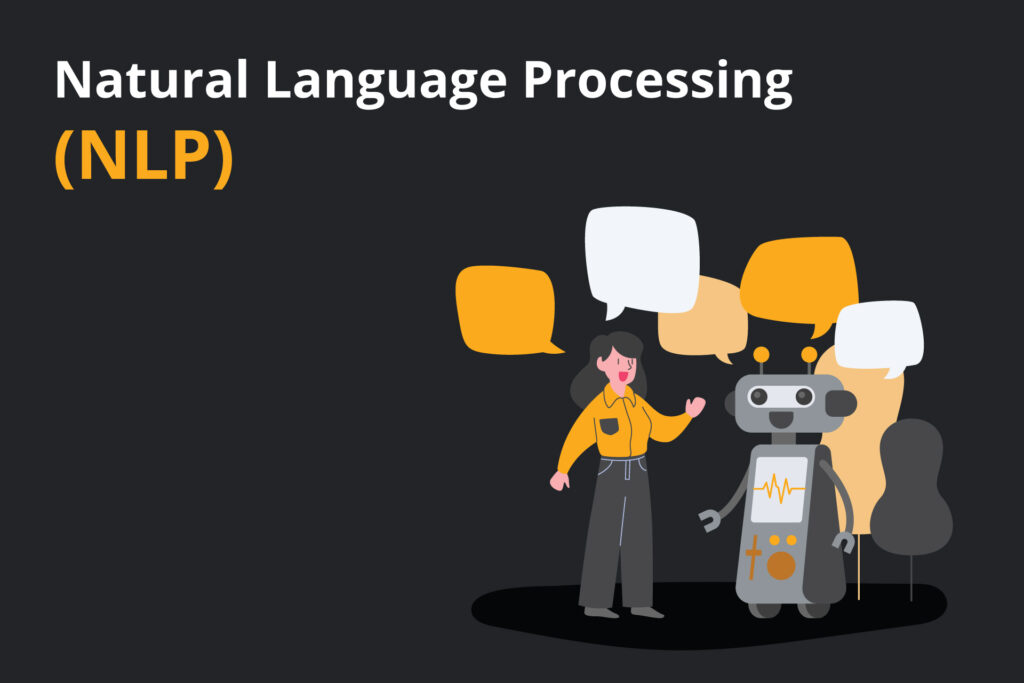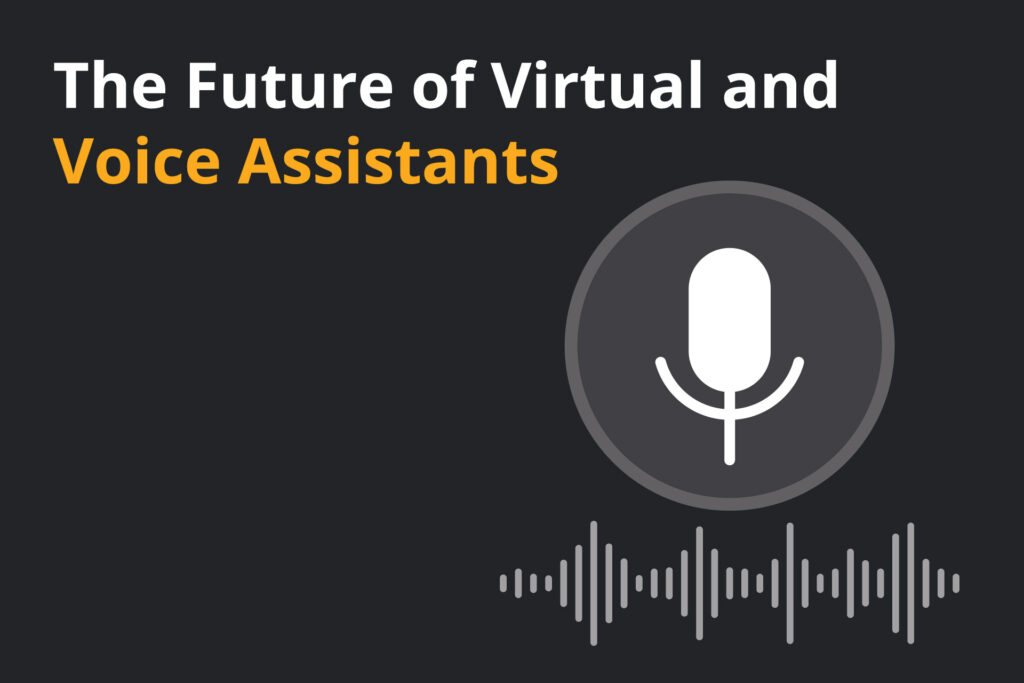As technology advances by leaps and bounds, so too do the opportunities for more efficient, user-friendly search experiences.
We are at a turning point where voice assistants and virtual agents are beginning to take over traditional forms of online search.

From Siri on iPhones to Amazon Alexa in homes, these tools have revolutionized how people interact with their devices and access information quickly.
In this blog post, we will explore how advancements in artificial intelligence (AI) are transforming the way users interact with content on their web browsers or through mobile apps.
Get ready to learn about the future of the search experience!
What is the difference between virtual and voice assistants?
Technology has become an indispensable part of our lives, so much so that we have become accustomed to interacting with virtual and voice assistants on a regular basis.

While there are similarities between these two types of assistants, there are also some key differences.
- What is it?
Voice search enables us to perform standard searches using only our voices on search engines such as Google and Bing.
Using voice assistant technologies such as Google Voice, Cortana, Siri, and Amazon Echo, we can ask precise questions and receive the most accurate answers.
On the other hand, virtual assistants are software-based applications that utilize artificial intelligence (AI) and natural language processing (NLP) to provide personalized assistance to users.
- Interaction
Voice Assistants use voice commands and spoken language, while virtual agents use text-baed conversations or GUI interaction.
- Access
Voice Assistants include devices with microphones and speakers, while virtual agents devices with screens (smartphones, tablets).
- What are they used for?
Voice Assistants: Industries may present unique use cases and micro-interactions, but the following general ones remain essential:
- obtaining answers to frequently asked questions,
- locating directions,
- acquiring contact information for companies, and
- discovering solutions to specific and detailed inquiries.
Virtual Agents: Industries differ in their use cases and micro-interactions, but common ones encompass:
- Placing calls
- Sending texts and messages through various chat applications like WhatsApp, WeChat, and Messenger
- Sharing content on social media
- Creating reminders
- Logging in to the customer
- Primary input method
Voice Assistants are based on voice commands, while virtual agents are based on typing and selecting options.
To sum up, virtual assistants usually take the form of software programs that can perform tasks such as scheduling appointments, managing emails, and answering basic questions.
Voice assistants, on the other hand, are often associated with smart speakers such as Amazon’s Alexa, which allows users to control other connected devices in their home, search the internet, and play music just by using voice commands.
Despite their differences, both virtual and voice assistants have become increasingly popular as people look for ways to simplify their lives and streamline their daily routines using technology.
Benefits of voice assistants and virtual agents in search
The rise of AI-powered technologies, such as voice assistants and virtual agents, is transforming the way people engage with search engines.

Voice search and natural language processing are becoming increasingly mainstream, and search engines are evolving to offer voice-enabled search features.
According to a recent study, 57% of people are already using voice search on their smartphones.
And it’s not just limited to mobile devices – the rise of smart speakers and other connected home devices means that voice search is quickly becoming a staple in households across the world.
Related: Will AI replace SEO?
But what are the actual benefits of using voice assistants and virtual agents for search? The answer is below.
1. Enhanced user experience
Voice assistants and virtual agents have revolutionized the way users interact with search systems by providing a natural and intuitive way of communication.

Conversational interfaces have reduced the need for typing and navigating cluttered menus, offering a seamless and user-friendly experience. Instead, with voice commands, users can simply speak their queries, mimicking the patterns of everyday conversations.
Whether at home or on the go, these interfaces adapt to the situation, making search systems more responsive and easier to use.
Related: How much bad UX design can cost you.
2. Efficiency and time-saving
These intelligent machines are programmed to retrieve information quickly, without the need for manual browsing or searching.
With just a single voice command, users can obtain instant responses to their queries, saving valuable time and effort.
What’s more? These digital assistants can also automate tasks such as scheduling reminders, booking appointments, or purchasing products, making life more comfortable and worry-free.
3. Hands-free and multitasking capabilities
With hands-free and multitasking capabilities, voice assistants have revolutionized the way we interact with technology.

Whether you’re a busy parent, a professional on-the-go, or someone who just wants to streamline their daily routine, voice assistants offer unparalleled convenience and productivity.
Beyond simply answering questions or completing tasks, voice assistants have become trusted companions in our everyday lives, enabling us to stay connected and engaged no matter what we’re doing.
4. Personalized recommendations
Personalized recommendations generated by voice assistants and virtual agents can help us navigate this information overload.
By gathering data about our preferences, behavior, and context, these tools can provide tailored search results that align with our individual needs and interests.
In essence, they become our personal assistants, cutting through the noise to deliver information that is truly relevant and useful.
5. Natural Language Processing (NLP)
Thanks to advancements in NLP technology, voice assistants and virtual agents are now able to decipher context, handle complex requests, and provide more accurate responses to user queries.

This improves the overall search experience and reduces frustration caused by misinterpreted queries.
Today, we can speak naturally to our devices and expect them to understand and interpret our commands.
The Future of Virtual and Voice Assistants
As we navigate through the technology-driven society we live in today, we can see a clear trend of devices becoming more user-friendly through the incorporation of voice communication.

In fact, the number of such devices is on the rise, with global smart speaker sales hitting an all-time high of 150 million units in 2020.
According to studies, 34% of those who do not own a voice assistant are interested in purchasing one, further indicating the growing popularity of this technology.
Additionally, statistics show that an increasing number of people are using voice search daily, whether for information, business, or purchasing purposes.
With the interest in voice technology continuing to grow among both consumers and businesses alike, the inevitability of these devices’ presence and continued development in our lives is evident.
Moreover, research conducted by Stanford University’s Artificial Intelligence Laboratory highlights the potential of deep learning algorithms in enhancing the accuracy and comprehension of voice assistants.
With a deeper understanding of context and user preferences, assistants will provide highly personalized responses and recommendations.
Conclusion
Virtual assistants and voice search are already here, and they are poised to revolutionize the way people search for information.
Now that we have seen how they work, it is time to imagine and create a world where people no longer need to type in queries but can simply speak them to their devices.
With the rapid pace of technology development, we have a unique chance to create smarter agents that offer personalized solutions and enhanced search experiences tailored to users’ wants and needs.
After all, virtual agents and voice search may just be our ticket to a more convenient life.





